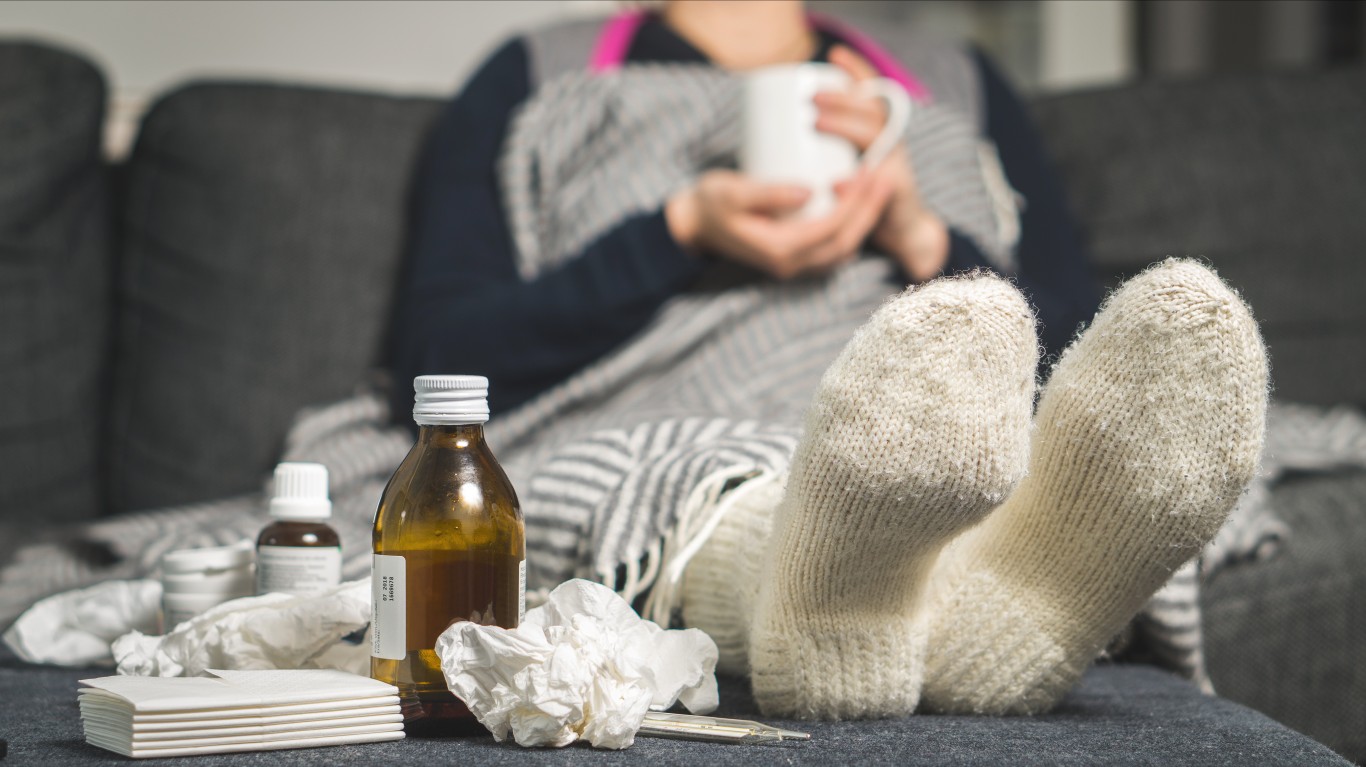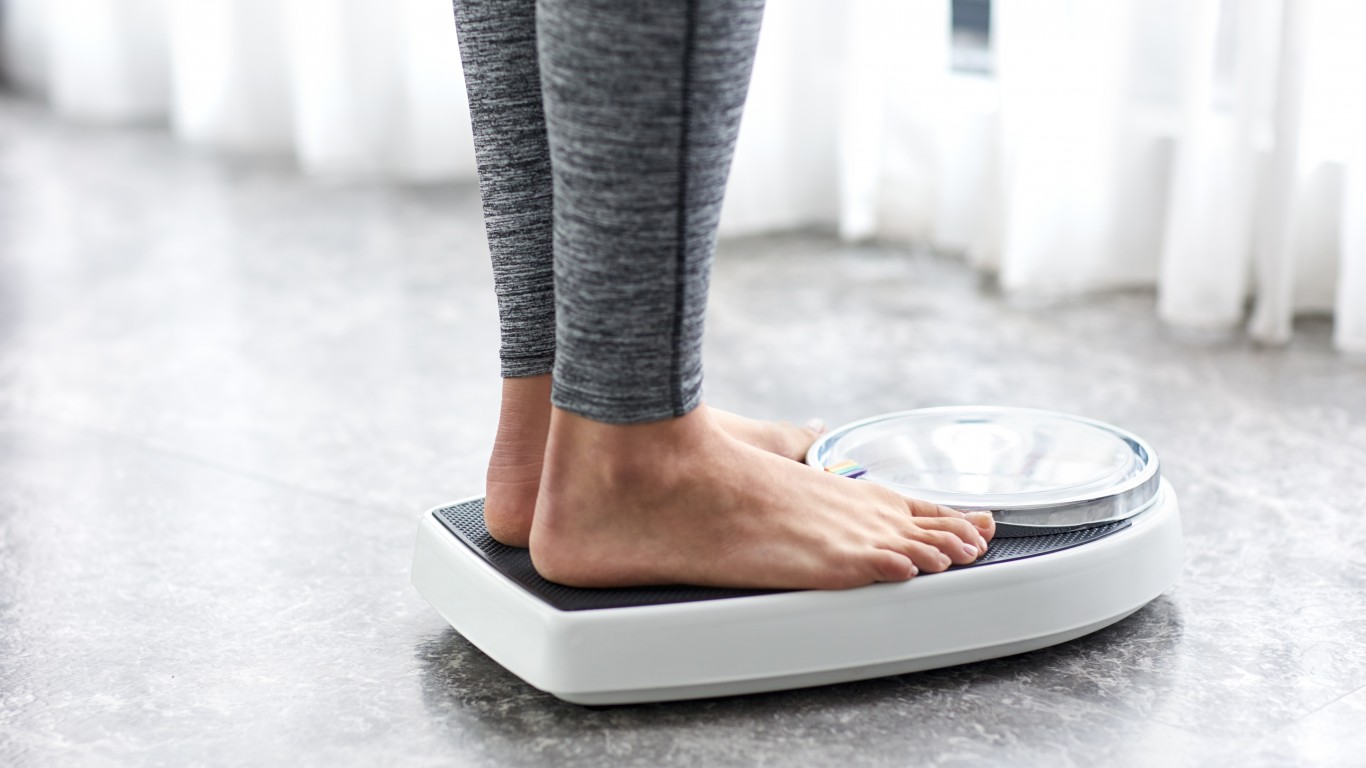
Chronic obstructive pulmonary disease is an umbrella term for progressive lung diseases, primarily chronic bronchitis and emphysema — conditions that make breathing increasingly difficult. Most COPD sufferers have bronchitis and emphysema simultaneously.
The disease occurs primarily in current or former smokers over the age of 40. Long-term exposure to secondhand smoke or other pollutants in the air may also trigger COPD, and there is a genetic condition called AAT (alpha-1 antitrypsin) deficiency that can trigger the disease even in those without other risk factors.
COPD is distinct from asthma, though there is overlap between the two diseases, and researchers have begun to reevaluate the concept of asthma and COPD as separate conditions. It has also been found that children who suffer from asthma are at possible increased risk of developing COPD in early adulthood.
According to the National Institutes of Health, more than 16 million Americans suffer from COPD, and it is the fourth leading cause of death in the United States, claiming about 150,000 lives each year — about 90% of the victims having been smokers.
There is no known cure for COPD, and it is a progressive disease, meaning that it worsens over time, and may be fatal. The good news is that it develops slowly, and while there is no way to stop it from worsening, there are a number of ways to impede its progress.
To identify 12 ways to slow the progression of COPD, 24/7 Wall St. consulted the websites of the National Institutes of Health and in particular the National Heart, Lung, and Blood Institute; the Cleveland Clinic; the COPD Foundation; the Lung Institute; and COPD.net. Additional information about the disease came from the websites of the National Center for Biotechnology Information and The New England Journal of Medicine.
Click here for 12 ways to fight lung disease.

1. Quit smoking
“Quitting smoking is the most important step you can take to treat COPD,” according to the National Heart, Lung, and Blood Institute. Sources are unanimous that smoking is the main COPD risk factor. A 2016 study found approximately 20% of smokers develop the disease. According to the National Heart, Lung, and Blood Institute, as many as 75% of people who have COPD smoke or used to smoke.
[in-text-ad]

2. Avoid secondhand smoke and other irritants
Regular exposure to any airborne irritants can increase the possibility of developing COPD. Secondhand smoke, both from the burning of tobacco and the exhales of smokers, is a major concern. So are fumes, dust, chemicals, gases, urban air pollution, particulate matter cooking and heating processes, and other potentially toxic substances that can be inhaled.
It should be noted that COPD is considered a disability, and the Americans with Disabilities Act (ADA) requires employers to make “reasonable accommodations” to the disabled, including COPD sufferers, under certain conditions.

3. Avoid the flu
The flu and other illnesses that affect the respiratory system can cause serious issues for those with COPD. Sufferers should get an annual flu shot and take other preventative measures, like washing their hands frequently and avoiding contact with anyone who’s sick. The pneumonia vaccine is also recommended because this condition can be life-threatening for those with COPD.

4. Exercise
Regular exercise is important for COPD sufferers, as it helps maintain muscle strength, and breathing is controlled by the diaphragm and other respiratory musculature. Though shortness of breath may make it difficult at first, it is recommended that those with COPD spend up to 20 or 30 minutes on exercise three or four times a week, to lessen symptoms, strengthen the heart, and reduce stress.
[in-text-ad-2]

5. Eat well
People with COPD, especially in more severe forms, sometimes have trouble eating due to fatigue and shortness of breath, which means they may not be getting the nutrients and calories they need, which can worsen symptoms and increase risk of infection. Some doctors suggest such measures as resting before eating, consuming smaller but more frequent meals, and taking dietary supplements. Doctors also stress the importance of eating fruits and vegetables rich in antioxidants, which may help protect the body’s cells.

6. Maintain a healthy weight
Excess weight makes the heart and lungs work harder than they should, which may make COPD symptoms worse. Eating well and exercising can help keep weight down. Being underweight can be a problem too, causing fatigue and an increased risk for chest infections.
[in-text-ad]

7. Consider air cleaners and humidifiers
Indoor air cleaners, either individual ones that attach to windows like air conditioners or house-wide ones hooked up to HVAC systems, can be useful in maintaining good air quality. Changing furnace filters often can help too. In cold climates, and especially in winter, use of room humidifiers is also recommended.

8. Consider pulmonary rehabilitation
Pulmonary rehabilitation is a comprehensive rehab program offered by health professionals. The program, used with medical therapy, may include an exercise regime, nutritional and psychological counseling, physical therapy, and training in managing COPD.

9. Consider oxygen therapy
Inhaling oxygen from a tank, through a mask or nasal prongs, can help those with severe COPD and low blood-oxygen levels breathe better. This is done either periodically throughout the day and night or continuously.
[in-text-ad-2]

10. See your doctor regularly
It is important for COPD sufferers to have a good relationship with the doctor treating their condition. Those diagnosed with the disease should see their physicians two or three times a year, as well as at any sign of changing or worsening conditions.

11. Take your medications as directed
Maintaining the prescribed medication program — following recommended dosages and timing — is important. (Medications may include bronchodilators, usually taken via an inhaler.) When people with COPD self-manage their care, there is a danger that they will increase the dosage of medications they’re taking if their symptoms worsen, which can lead to serious complications.
[in-text-ad]

12. Consider surgery
As a last resort for COPD sufferers whose condition doesn’t respond well to other measures, several kinds of surgery are sometimes recommended, including a bullectomy (removal of dilated air spaces in the lungs), lung reduction, or in extreme cases a lung transplant.
It’s Your Money, Your Future—Own It (sponsor)
Retirement can be daunting, but it doesn’t need to be.
Imagine having an expert in your corner to help you with your financial goals. Someone to help you determine if you’re ahead, behind, or right on track. With SmartAsset, that’s not just a dream—it’s reality. This free tool connects you with pre-screened financial advisors who work in your best interests. It’s quick, it’s easy, so take the leap today and start planning smarter!
Don’t waste another minute; get started right here and help your retirement dreams become a retirement reality.
Thank you for reading! Have some feedback for us?
Contact the 24/7 Wall St. editorial team.




